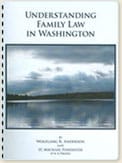Property is divided in a just and equitable manner in the state of Washington. There are many factors that come into play. Parties often equate a just and equitable division with an equal division. This is wrong. Courts have a great deal of latitude in interpreting what a “just and equitable” division of property is. Important factors are, but are not limited to:
- The length of the marriage
- The parties’ ages
- The parties’ health
- The parties’ economic circumstances
- Children of the marriage
- A party’s work history
- A party’s contributions to the relationship
Unless one has a great deal of experience in the dissolution area, one cannot properly assess where parties stand. Between the attorneys in this office there is close to 100 years of experience. Divorce is the primary focus of this firm. You can and should therefore be able to better understand what you’re facing after consulting with one of our attorneys.
Community and Separate Property
Community property is generally defined as property which was acquired during the marital relationship, primarily through wages and earnings. Community property may also be a party’s separate property that was converted by titling, such as placing the other on an account or on title to real estate. Separate property also comes into play through an inheritance or gifts. In a short-term marriage, the Court will try to retain for a party their separate property. In a long-term marriage, the Court often tends to disregard separate property and treats all property as if it were community property. In a median-range marriage, defined as somewhere between 5 and 15 years, Courts approach a division of property on a case-by-case basis.
Wolfgang R. Anderson and H. Michael Finesilver (f/k/a Fields) have written a book, “Understanding Family Law In Washington,” that you can only purchase through our office which explores issues of property division (and more). Because a Court has the equitable power to divide separate property as well as community property, it is important that you discuss this aspect of your case with one of our attorneys.
Maintenance
Courts can also award spousal maintenance in a divorce action. An award of spousal maintenance should be without respect to gender and is generally based on need and ability to pay. Courts also consider the length of the marriage; children to take care of; the parties’ lifestyle, a party’s work history; age of the parties; a party’s health and a party’s capability. There are other factors the Court considers, which again are specifically addressed in the book written by Wolfgang R. Anderson and H. Michael Finesilver (f/k/a Fields).
What’s It All About
Generally speaking, the Court grants dissolution proceedings without regard to a party’s misconduct. Misconduct is interpreted to be, generally speaking, physical, sexual and something other than financial. Financial misconduct is always relevant. Wolfgang R. Anderson and H. Michael Finesilver (f/k/a Fields) discuss the subject in their book which you can purchase through their office.
Other Family Related Lawsuits
This office also assists clients with paternity actions, child support matters, modifications in maintenance and child support, relocation, property settlements, cohabitation agreements, prenuptial agreements, and meretricious relationships (now referred to as “intimate, committed relationships”). All of the above are discussed in the book written by Wolfgang R. Anderson and H. Michael Finesilver (f/k/a Fields).
Our Book

“Understanding Family Law In Washington” is the book coauthored by Mr. Anderson and Mr. Finesilver. It contains various sections regarding the law in order to help a client better understand what they’re facing. Because we are zealous in our representation of our clients and did not write the book for general consumption, it is only available through our office and primarily for our clients or future clients. The various sections that are discussed in detail and which represent a compendium of the law (save case citations) are: What’s It All About – General; Dividing Property, Paying and Receiving Alimony, Child Support and Enforcement, Custody and Parenting Time, Intake Forms, Child Support Worksheets, Financial Declaration, Deposition Instructions, etc.
Every lawyer in our office is well versed in the law. At various times our lawyers are involved in trials, are on vacation or are otherwise busy. For this reason it is suggested if you cannot reach the attorney you wish that you discuss your issues with another attorney in our office, as the advice will be relatively comparable.






